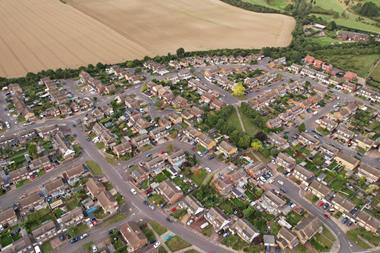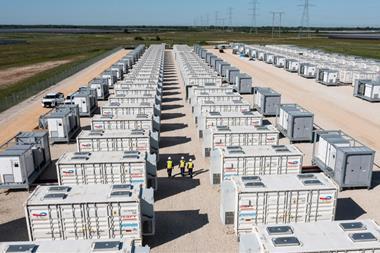Denmark’s financial watchdog has criticised some of the country’s main private-sector pension funds for failing to be on top of risk management with their large infrastructure investments.
As part of a long-term investigation into infrastructure investments of eight pension funds, the Danish Financial Supervisory Authority (FSA or Finanstilsynet) sent letters to each of the funds on Tuesday — including official orders to step up specific types of risk management.
The funds involved are the three pension funds run by PKA, PensionDanmark, Sampension, Danica Pension, MP Pension and Industriens Pension.
The thematic investigation by the watchdog, which has been going on since 2017 and has resulted in no serious consequences such as fines, is seen in the sector primarily as an exercise to ensure best practice around what is a growing investment class for pension funds.
Carsten Brogaard, deputy director of the Danish FSA, said: “There is a need for the companies’ supervisory boards to take greater responsibility for setting out a clear risk profile for the investments.
“The management documents must be so specific that they also actually show the way in terms of the risks that the board wishes to take on behalf of the pension savers,” he said.
The individual letters to the pension funds reveal that some of the funds received five official orders to make changes while others were given as few as two.
The failings highlighted by the FSA included:
- Supervisory boards not having set risk profiles for the investments to a sufficient degree, and/or ensured this within their policies and guidelines;
- That is was unclear whether the companies had dealt with conflicts of interest in connection with valuations;
- The identification of risk in relation to investments in infrastructure funds;
- Deficiencies in relation to the measurement of risk and assessment of the risk/return ratio.
The supervisory authority said investments in infrastructure represented three percent of Danish pension providers’ overall investment assets, but there were big variations between individual firms’ allocation to the asset class.
Alternative investments, excluding property, accounted for 11% of the sector’s overall investments, the FSA said.
PKA responded to the FSA’s letters on the topic to three of the four pension funds it runs saying that most of the orders it had received from the FSA concerned the fund-based infrastructure investments, which made up around a third of its total exposure to the asset class.
The three funds are the Health Care Professionals Pension Fund, the State Registered Nurses and The Medical Secretaries Pension Fund and the Social Workers, Social Pedagogues and Office Staff Pension Fund.
Between 2013 and 2018, PKA said it had made an average annual return on direct infrastructure investments of around 10%, while infrastructure funds had yielded 6%.
“PKA takes note of the FSA’s statement and is in the process of ensuring compliance,” the firm said.
Meanwhile, Danica Pension’s CIO Anders Svennesen said his firm welcomed and would meet the requirements of the FSA.
“They are in line with the general work we have been conducting to strengthen our processes related to alternative investments to reach an even higher level,” he told IPE.
PensionDanmark said it was pleased to note that the Danish FSA had not commented on the actual implementation or valuation of specific investments.
But it had made a number of comments about the company’s organisation, including the division of labour between different functions, and had demanded a number of clarifications in the supervisory board’s investment framework, it said.
“PensionDanmark is in the process of implementing the proposed changes,” it said.
The pension fund has made a 10.1% average annual return on its infrastructure portfolio between 2014 and 2018 according to data published this week.
Jens Munch Holst, chief executive of MP Pension, said: “We have already addressed most of the points which the FSA has brought up in the course of 2018, and we are currently working on completing the last ones during the first quarter of 2019.
“Infrastructure is an exciting and growing investment field and we value the input we have received from the FSA,” he said.
A spokesman for Industriens Pension said it had had it “confirmed that our overall processes are very thorough and work well”.
The regulator had commented on two areas, he said, adding that Industriens Pension fully agreed with the comments and was “already in the process of improving practice in these areas.”
In March 2017, the Danish government moved to give the FSA extra funding of DKK2m a year to boost policing of alternative investments by pension funds.














